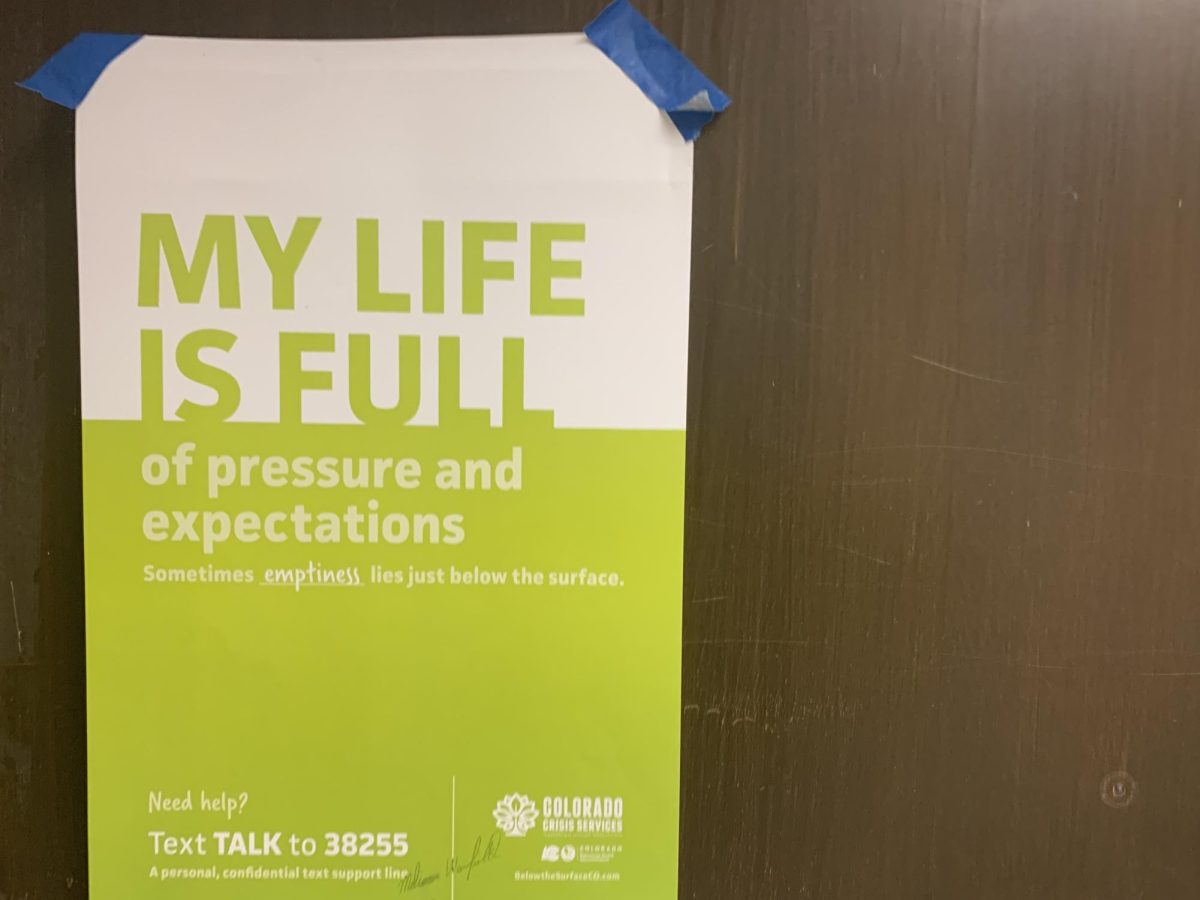With finals week just ahead and the semester drawing to a close, for many, these past few weeks have been a stress-storm of tests, projects, and presentations, on top of endless homework and studying hanging over our heads. How do we take care of ourselves at such a stressful time?
We interviewed licensed therapist Jenny Hecht for information and advice on how to tend to our mental health. Here’s what she had to say.
It is no secret that mental health is just as important as physical health, a vital aspect of your well-being. It might also be no surprise that our country’s collective mental health has steadily been getting worse since the turn of the century. For teens, the lasting effects of the COVID-19 pandemic, along with the growing use of social media and the pressure of academic performance cause constant stress and anxiety in our daily lives. According to the American Psychological Association, feelings of persistent sadness and hopelessness among Americans have increased by about 40% in the ten years from 2010 to 2020. It is now more important than ever to intentionally care for and preserve your mental health. But how, exactly, do we do that?
To start, Jenny wanted to make it clear that taking care of your mental health does not mean there is something wrong with you. “Everyone has mental health, as it is another domain of our health,” Jenny said. “It requires the same level of care and intention as our physical health.” When we don’t put in the effort to take care of our mental health, it is easy to let any stressor, such as an upcoming math test, cause us to feel overwhelmed, stressed, or exhausted.
When our brains get overloaded with pressure from things such as social media or school, the stress “turns off our prefrontal cortex, the part of our brain that gives us the ability to think critically, solve problems, control impulses, manage our time effectively, and find motivation. Instead, we are now being run by our amygdala, which is the part of our brain that helps us to survive,” said Jenny. The fight, flight, or freeze reaction that the amygdala triggers is what causes these intense feelings of exhaustion, hopelessness, anger, or panic. Many students are familiar with these feelings… they often occur during late-night study sessions, a final exam, or just during the course of a normal day. The amygdala response is what causes us to start scrolling through social media rather than finishing our homework, to freak out over the upcoming test rather than studying for it, or to feel like “giving up”.
While these emotional reactions may not always be preventable, Jenny explains that there are ways to escape this mindset. “Learning to recognize when you are in this state and taking the time to engage in practices that help to reengage your prefrontal cortex is a very important part of avoiding ‘burnout’, which happens when our nervous system spends too much time in an amygdala-driven state,” says Jenny. Jenny stated that there are many practices that restore our mental health: almost anything that moves your body and engages your mind can help bring you back to focus. This could include getting exercise, going outside, taking a few breaths, getting some food, or calling a friend.
Jenny also led us through a few grounding exercises that can help pull us out of this emotional state and return us to a decision-making one in just a short amount of time.
“If you are stressed, the energy in your body travels up to your head,” Jenny explained. “We stop paying attention to our bodies and miss important cues. The idea of ‘grounding’ literally means to pull your energy back down to the ground.”
“If you are feeling stressed and/or overwhelmed, start by bringing your attention to your seat or your feet. Simply notice yourself being supported by the seat you are on or your feet on the floor. Begin to extend your exhales so they are longer than your inhales, ideally exhaling through your mouth. And imagine that you are an hourglass timer filled with sand that has just been flipped over so all of the sand is at the top of your head. As you breathe, that sand travels down the centerline of your body, gathering at your seat or your feet, creating an increasing sense of heaviness and groundedness.”
Jenny also emphasized the importance of taking care of your mental health in your daily life. Providing your body with the nutrients, sleep, and exercise it needs on a regular basis is a great way to avoid feeling overwhelmed by everyday stress.
By using these simple grounding exercises and making sure to maintain your mental health through healthy behaviors and patterns, you can help keep yourself safe and stable during even the most stressful times. If you are struggling with maintaining your mental health, seek out additional ways to improve your mental health. There are many resources available that can help keep you safe and healthy. Talk to a Boulder High counselor, therapist, trusted adult, or friend, or look into the many websites, programs, and helplines available online. Take care of yourself this holiday season, and good luck with finals, Panthers!




